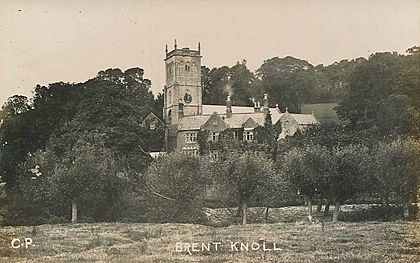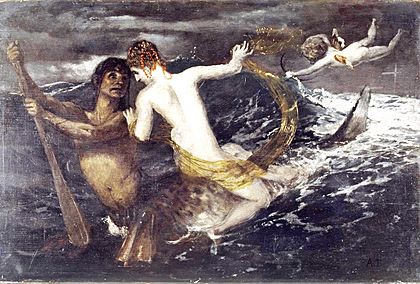William Diaper facts for kids
Quick facts for kids The Reverend William Diaper |
|
|---|---|
| Province | Canterbury |
| Diocese | Bath and Wells |
| Orders | |
| Ordination | Deacon (1709) |
| Personal details | |
| Born | 1685 Bridgwater, Somerset, England |
| Died | 1717 (aged 31/32) Deane, Hampshire, England |
| Denomination | Anglican |
| Alma mater | Balliol College, Oxford
|
William Diaper (1685–1717) was an English church leader, a poet, and a translator. He lived during a time called the Augustan era, known for its classical style in writing. William Diaper lost his supporters and his chance to advance his career because he chose the losing political side during a big change in who ruled the country. He died not long after, without much fame.
Contents
William Diaper's Life Story

We don't have many details about William Diaper's early life. He was born in Bridgwater, England. His father's name was Joseph Diaper. In 1699, William went to Balliol College, Oxford University. He was a "poor scholar," meaning he needed financial help to study there. He earned his first degree, a BA, in 1705.
In 1709, he became a deacon, which is a step in becoming a priest. He then worked as a curate in a church in Brent Knoll. This village overlooks the Somerset Levels, a flat area of land. He wrote a funny poem about this place.
Joining the London Literary Scene
William Diaper's next poems were called Nereides, or Sea-Eclogues. They were published in 1712 and were quite new and different. These poems helped him become known in the London writing world.
The famous writer Jonathan Swift noticed Diaper. Swift wrote about him in his diary, A Journal to Stella. In March 1712, Swift said Diaper had written "Sea Eclogues," which were poems about mermen. He thought they were "very pretty" and had a "new" idea. Swift wanted to help Diaper, even though he joked about new writers taking over.
Later that year, Swift introduced Diaper to important politicians. These included Henry St John and William Wyndham. They were part of a group called the Society of Brothers, which supported the Tory political party. Swift described Diaper as "a poor little short wretch." He hoped to help Diaper become a full priest. The next month, Swift visited Diaper, who was "very sick" in a small room. Swift gave him money from his new supporters.
New Projects and Political Changes
While in London, Diaper worked on other writing projects. He helped translate a Latin poem called Callipaedea or the Art of getting beautiful Children. He also strongly supported the Tory politicians who were helping him. He celebrated the Treaty of Utrecht in his poem "Dryades, or the nymphs prophecy" (1713).
Thanks to his supporters, Diaper became a curate in Deane, Hampshire, and also in Crick, Northamptonshire, by 1714. In that year, he dedicated a poem to Swift, mentioning his church job in Hampshire.
However, the Tory government that supported Diaper soon lost power. George I became king, and a new government took over. This meant Diaper lost all hope of getting further promotions.
Diaper then started his own translation project. He began translating Halieutica, a long poem about sea-fishing by Oppian. But he was still very ill. He died by 1717, having only translated the first two books. A friend from his old college, John Jones, finished the work. It was published in 1722.
William Diaper's Reputation Over Time
Even though William Diaper died young, his work was not completely forgotten in the 1700s. Alexander Pope, another famous poet and a friend of Swift, mentioned Diaper in his poem The Dunciad. However, this mention was removed from later versions of Pope's poem.
Diaper's poems were sometimes republished in old collections. For example, "The Dryades" appeared in The Poetical Calendar (1763). The Nereides was in John Nichols’ A Select Collection of Poems (1782). His satirical poem "Brent" was not published while he was alive. When it was, it sometimes had different titles.
For a long time, Diaper's name was mostly forgotten. He was not included in important collections of poets like Samuel Johnson’s Lives of the Poets (1779–81). He also didn't appear in the Dictionary of National Biography (1885–1900).
His reputation began to improve in the mid-1900s. A critic named Geoffrey Grigson gave an excited radio talk about Diaper. He later included it in his book The Harp of Aeolus (1947). Because of Grigson's interest, a new collection of Diaper's poems was published in 1952. After that, people started studying his work more. A modern poet, George Szirtes, even wrote a poem called "Airs for William Diaper" in 2008, celebrating Diaper's writing about fish.
William Diaper's Poetry Style
Most of William Diaper's poems were written in a pastoral style. This style usually describes the peaceful life of shepherds. However, Diaper always found new and creative ways to use this style. His poems usually used heroic couplets, which are pairs of rhyming lines with ten syllables each. This was a common style in his time.
Satire and Innovation
His earliest poem was probably "Brent," a funny description of the village where he first worked as a curate. It was published after he died. This poem is dedicated to Thomas Palmer, a local politician. It has been called an "anti-pastoral" because it makes fun of the usual peaceful pastoral themes. Instead of pretty streams, it talks about "rine" (small rivers) and "moory sink" (boggy areas). The Somerset Levels often flooded from the sea, and Diaper included these floods in his poem in a funny, grand way.
-
- As when of late enraged Neptune sware,
- Brent was his own Part of his lawful Share;
- He said, and held his Trident o’er the Plain.
During Diaper's time, writers wanted to move beyond just copying old Greek and Roman styles. They started adding details from everyday life in cities. Jonathan Swift liked Diaper's new approach in Nereides, or Sea-Eclogues. Diaper's idea was to take typical pastoral stories and move them from land to the sea. His characters became sea-gods and sea-nymphs. He wrote that "the agreeable Images, which may be drawn from things on Earth, have been long since exhausted." He believed the "Beauties (as well as the Riches) of the Sea are yet in a great Measure untouch’d."

For example, in "Eclogue IV," Diaper's characters compare the calm conditions under the sea to the changing English weather above. "Eclogue XII" says that a fisherman's life is better than the shepherd's life that was often praised in older pastoral poems. Diaper also used details from marine nature as new sources for his imagery.
Political Themes in Poetry
Diaper's poems sometimes included patriotic themes. In "Eclogue XII," he praises an admiral of the English navy named Lacon, who is thought to be John Leake. Diaper showed his Tory political views more directly in "Dryades, or the nymphs prophecy." This poem praised those who ended England's involvement in the War of the Spanish Succession. He specifically named politicians like Bolingbroke, Robert Harley, and Matthew Prior.
Diaper's last original poem was "An imitation of the seventeenth epistle of the first book of Horace, address'd to Dr. Swift" (1714). He wrote it as a reply to Swift's own poem about the difficulties of getting help from a wealthy supporter. Diaper's poem was unique because it relied more on Swift's poem for its meaning than on the original Latin poem.
Translating Halieutica
Diaper also continued his interest in the sea when he translated Halieutica. John Jones, who finished the translation after Diaper's death, noted that Diaper "somewhat paraphrased the Author." This means Diaper didn't just translate word-for-word. He added his own ideas and rich descriptions.
For example, at the end of the first book, Diaper describes shoals of "Slime-Fish":
As when soft Snows, brought down by Western Gales,
Silent descend and spread on all the Vales;
Add to the Plains, and on the Mountains shine,
While in chang'd Fields the starving Cattle pine;
Nature bears all one Face, looks coldly bright,
And mourns her lost Variety in White,
Unlike themselves the Objects glare around,
And with false Rays the dazzled Sight confound:
So, where the Shoal appears, the changing Streams
Lose their Sky-blew, and shine with silver Gleams."
This description is mostly Diaper's own idea. It shows his ability to observe and describe things in a fresh way. The critic Geoffrey Grigson admired Diaper's original observations. He said that writing of such quality was rare, especially in Diaper's time. However, because Diaper's style was different from what was popular then, it took a long time for his imaginative work to be rediscovered.
 | Tommie Smith |
 | Simone Manuel |
 | Shani Davis |
 | Simone Biles |
 | Alice Coachman |

